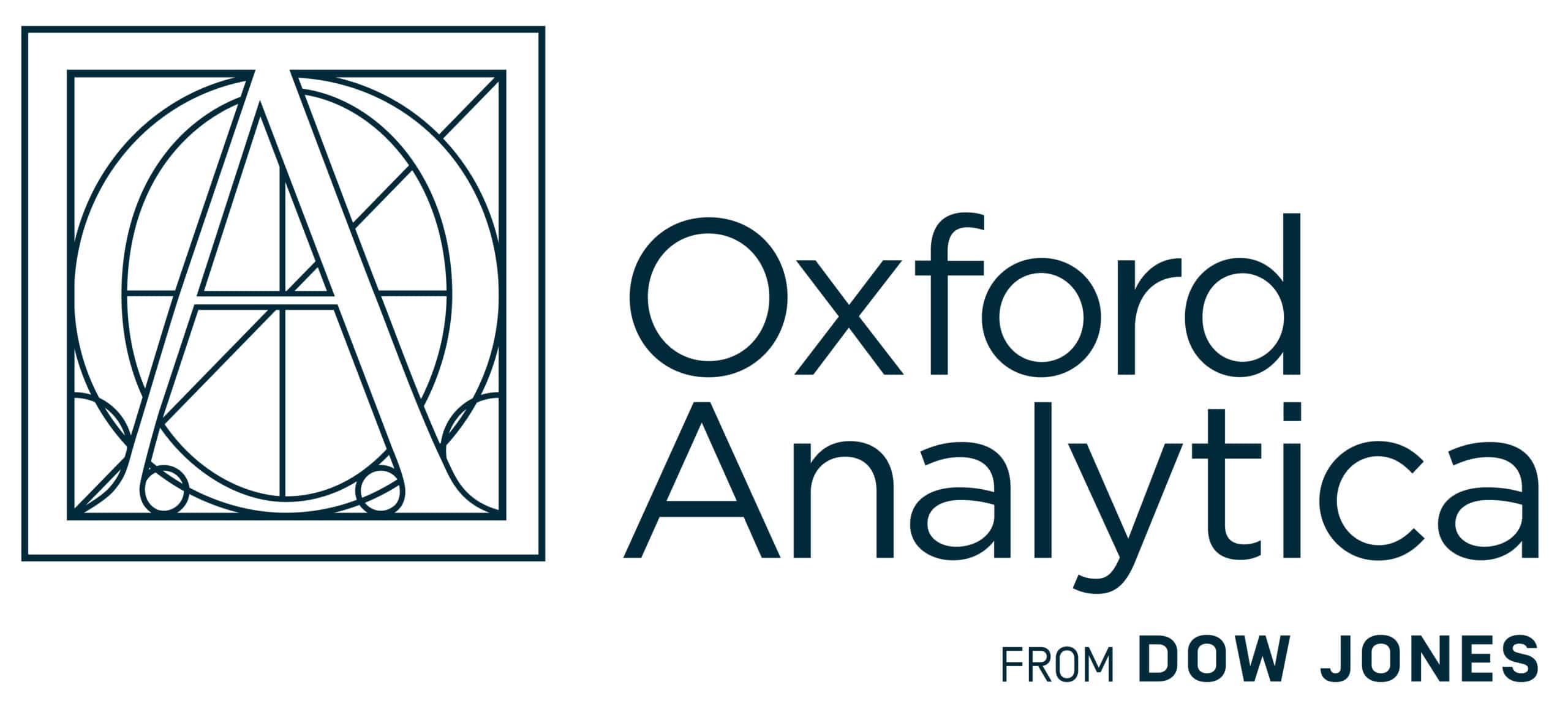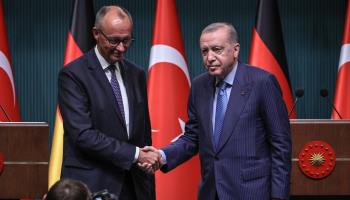Ankara appears invested in seeing the ongoing rapprochement with its Western European allies succeed
Last week, Turkish President Recep Tayyip Erdogan hosted visits from UK Prime Minister Keir Starmer and German Chancellor Friedrich Merz. Starmer’s visit yielded a breakthrough in Ankara’s years-long bid to acquire Eurofighter Typhoon jets, as the two countries signed a GBP8bn (USD10.5bn) deal for 20 units. The sale went through after Germany, a key member of the Eurofighter consortium, lifted its objections. This highlights Turkey’s ongoing rapprochement with Western European allies following Russia’s invasion of Ukraine.
What’s next
Even if Ankara’s EU membership bid is unlikely to be revived soon, the two will increasingly cooperate in key sectors such as defence, an arrangement that benefits both parties. EU heavyweights will put pressure on holdouts such as Greece to approve Turkey’s participation in EU defence funding schemes, while Turkish defence companies will continue making inroads into the EU market regardless. Developments in Syria will remove a previous obstacle to closer relations.
Subsidiary Impacts
- For business, Turkey may make progress on expanding its customs union with the EU.
- The EU is unlikely to impose costs on Ankara over Erdogan’s efforts to consolidate power at home.
- Ankara may reduce purchases of Russian oil and gas but will not downgrade ties with Moscow.
Analysis
Germany and Turkey reached an agreement on the Typhoons’ sale during German Foreign Minister Johann Wadephul’s visit to Ankara on October 17.
German ties
Berlin had long blocked large arms sales to Turkey due to disagreements over the latter’s domestic governance, foreign policy and interference in domestic affairs in Germany, home to large ethnic Turk and Kurdish minorities.
Then, last year, Germany authorised the transfer of missiles and torpedoes to Turkey’s navy, as well as material packages for modernising Turkish submarines and frigates, signalling a change in approach. Berlin had also been blocking the delivery of key German-made parts for the Russian-built nuclear power plant in Akkuyu, delaying its construction, until earlier this year (though Russia sourced Chinese alternatives in the meantime).
Merz’s recent trip is another step in the two countries’ rapprochement since February 2022. Since Russia invaded Ukraine, Turkey has been visited by then Chancellor Olaf Scholz (March 2022), Wadephul’s predecessor Annalena Baerbock (July 2022), Scholz’s Economy Minister Robert Habeck (October 2023) and President Frank-Walter Steinmeier (April 2024).
French connection
A similar shift has taken place in Turkey’s previously fraught relations with France.
While French President Emmanuel Macron has criticised the March arrest of Ekrem Imamoglu, the opposition mayor of Istanbul, he has taken care not to jeopardise his investment in closer relations with Erdogan (see TURKEY: Imamoglu’s arrest will leave country reeling – April 2, 2025).
Macron has welcomed Turkey into the pro-Ukrainian ‘Coalition of the Willing’, with Ankara offering to contribute to a potential peacekeeping mission in the Black Sea. France, a firm backer of Yerevan, has also cheered the prospect of peace between Armenia and Azerbaijan (Turkey’s closest ally), as well as the potential normalisation of diplomatic ties between Armenia and Turkey (see TURKEY: Economic aims will drive regional policy – August 6, 2025).
Turkey has improved previously fraught ties with Germany and France
In turn, Turkey has voiced support for the tougher line Paris has pursued on Israel, as well as for the French-Saudi initiative for a roadmap to Palestinian statehood. Erdogan is also a regular attendee of meetings of the European Political Community, initiated by Macron to foster European-wide cooperation.
Ukraine war’s impact
These shifts were set in motion by the war in Ukraine and the return to office of US President Donald Trump, whose foreign and defence policies have signalled a pivot away from Europe, fuelling feelings of insecurity on the continent (see TURKEY: Ankara may benefit from US-EU split – February 25, 2025).
An increasing number of European states are recognising the potential of closer political and defence relations with Turkey, which has the second-largest military force in NATO and a world-class defence industry. The United Kingdom, Italy, Poland and Spain are among the early movers in this regard, having deepened defence ties with Ankara.
The EU dimension
Improving ties with member states has had positive knock-on effects on Turkish-EU relations:
- In April, the European Commission hosted the relaunch of the EU-Turkey high-level dialogue, suspended in 2019 in response to Turkish drilling in the Cypriot-claimed exclusive economic zone.
- In July 2024, the Commission also initiated a separate dialogue on trade. A July 2025 meeting in Ankara yielded two agreements on rules of origin and customs certificates.
- In parallel, the two sides held in Istanbul the third high-level dialogue on migration and security. The forum is overseeing the implementation of the 2016 deal for Turkey to accept migrant returnees.
- Turkey has pledged to adopt a national emissions-trading scheme in order to align with the European Green Deal and avoid additional import duties once the EU’s Carbon Border Adjustment Mechanism (CBAM) comes into force next year.
Ankara aims to achieve long-standing aims to ‘modernise’ the 1996 EU-Turkey Customs Union — expanding its scope to services, agricultural goods and public procurement — and to lift visa restrictions for Turks travelling to the Schengen free-movement area.
Turkey wants to modernise the customs union and lift visa restrictions
Though still at times paying lip service to it, both sides have largely dropped any pretences of Turkey’s EU accession. Selective engagement suits Ankara, preserving its strategic autonomy externally and giving Erdogan a free hand domestically, but also suits EU countries, who are not keen on accepting Turkey into the bloc anyway.
Defence-industrial cooperation
One potential area for deeper defence cooperation is offered by Security Action for Europe (SAFE), an EU-backed EUR150bn (USD173bn) loan facility for arms manufacturing projects.
During his visit, Wadephul called for Turkey’s inclusion in SAFE, which allows non-EU states’ participation under certain conditions. However, Greece has objected to such suggestions, while Cyprus has also voiced concerns (see GREECE: Bid to block Turkey-EU defence deal may fail – September 16, 2025). Ankara is excluded from other EU defence initiatives: the European Defence Fund, the European Defence Agency and the Permanent Structured Cooperation (PESCO).
Unless a compromise is reached, Turkey will miss the November 30 deadline for submitting bids to access SAFE.
However, pressure from Western Europe is mounting on Athens, where Wadephul stopped on his way to Turkey to convey Berlin’s position. The recent election as president of the Turkey-backed breakaway northern Cyprus of Tufan Erhurman, seen as pro-EU, may revive reunification talks on the island, easing Nicosia’s tensions with Ankara, at least temporarily (see CYPRUS: New Turkish Cypriot leader may restart talks – October 20, 2025).
Beyond high-stakes political initiatives, Turkish defence companies are making inroads into Europe, capitalising on expanding defence budgets across the continent:
- In March, Italian contractor Leonardo unveiled a joint venture with Turkey’s drone maker Baykar.
- In 2024, Baykar bought Italian aircraft producer Piaggio Aerospace.
- Turkey has been involved in joint projects with companies in Portugal (for the supply of naval vessels), Romania and Bulgaria.
Regional security
In addition to the Ukraine war, the EU and Turkey are looking at opportunities to cooperate in other areas of their shared neighbourhood.
The ascent to power in Damascus of Turkey-aligned Ahmed al-Sharaa has turned Syria, once a flashpoint between Ankara and the EU, into an area for cooperation. In March, the EU hosted a donor conference which pledged EUR5.8bn to the new authorities, and in April it lifted most sanctions on Syria at Turkey’s urging. EU countries are looking to encourage the return of Syrian refugees and Turkey is now seen as a key external force guaranteeing stability (see SYRIA: Turkey plans for even deeper security ties – October 20, 2025).
At the same time, parts of Turkish foreign policy remain at odds with that of the EU, especially Ankara’s ongoing relations with Moscow. Unlike its NATO allies, Turkey has resisted adopting sanctions against Russian energy companies and will continue to do so, though it may reduce purchases of Russian oil and gas (see TURKEY: Russian gas supply remains vital in short term – September 24, 2025).




